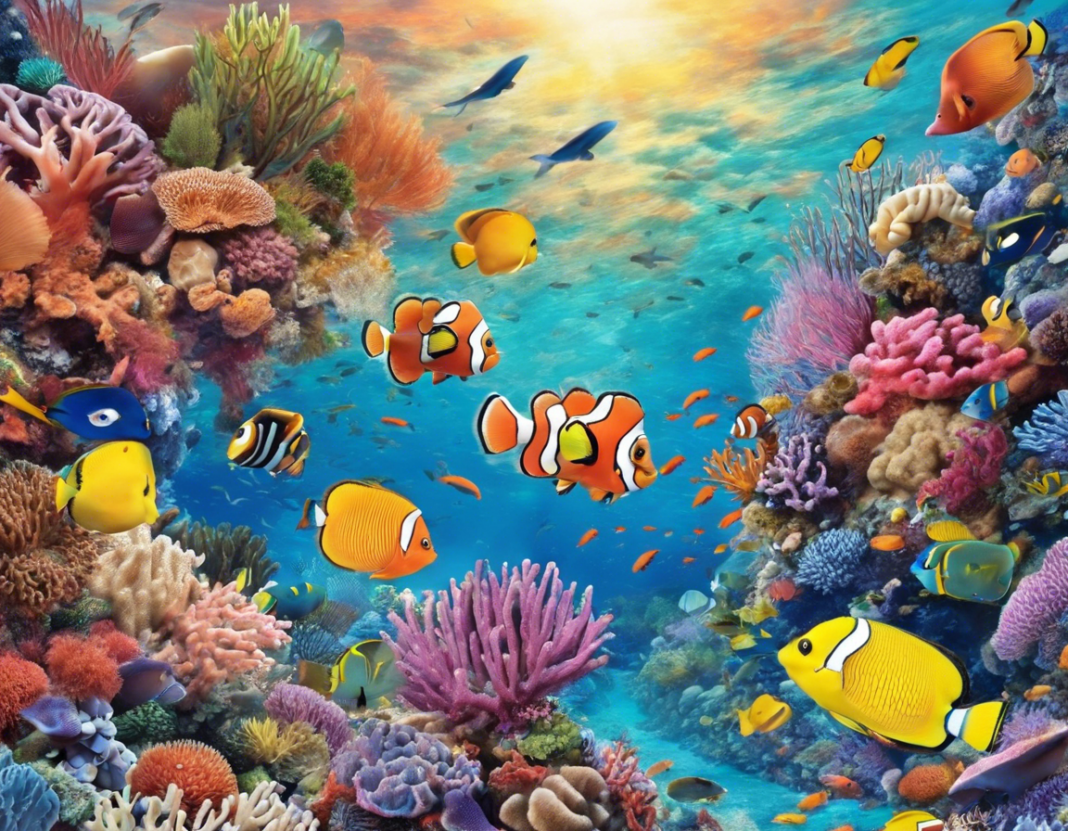The Great Barrier Reef in Australia is not just a stretch of coral reef; it is a natural wonder that holds tremendous ecological significance. Stretching over 2,300 kilometers along the Queensland coast, the Great Barrier Reef is the largest coral reef system in the world. It is home to a diverse range of marine life, making it a vital ecosystem globally. In this article, we will delve into the intricacies of the Great Barrier Reef, exploring its importance, biodiversity, conservation efforts, and tourism impact.
Importance of the Great Barrier Reef
The Great Barrier Reef is of immense importance for several reasons:
-
Biodiversity: The reef is home to thousands of species of fish, corals, mollusks, and other marine life forms. It supports an incredible web of life, making it a biodiversity hotspot.
-
Economic Value: The reef contributes significantly to Australia’s economy through tourism, fishing, and research activities. It is estimated to generate billions of dollars annually.
-
Climate Regulation: Coral reefs play a crucial role in regulating the global climate by absorbing carbon dioxide from the atmosphere. They also act as a barrier against storms and erosion.
Biodiversity of the Great Barrier Reef
The Great Barrier Reef boasts an unparalleled diversity of marine species, including:
-
Corals: The reef is primarily made up of hard and soft corals, forming intricate structures that provide shelter and food for numerous organisms.
-
Fish: The reef is home to over 1,500 species of fish, ranging from colorful reef fish to large predators like sharks and barracudas.
-
Invertebrates: Various mollusks, crustaceans, and other invertebrates inhabit the reef, playing essential roles in the ecosystem.
Conservation Efforts
Despite its immense ecological value, the Great Barrier Reef faces numerous threats, including climate change, pollution, overfishing, and coastal development. To protect this natural wonder, several conservation efforts are underway:
-
Marine Protected Areas: A significant portion of the reef is designated as marine protected areas where fishing and other activities are regulated to preserve the ecosystem.
-
Climate Action: Efforts are being made to reduce carbon emissions and combat climate change to mitigate the impact of rising sea temperatures and ocean acidification on the reef.
-
Research and Monitoring: Scientists conduct research and monitoring programs to assess the health of the reef, identify threats, and implement conservation strategies.
Tourism Impact
Tourism is a double-edged sword for the Great Barrier Reef. While it brings economic benefits and raises awareness about the reef’s importance, it also poses threats such as physical damage to the corals, pollution, and overcrowding. Sustainable tourism practices are necessary to ensure that the reef can be enjoyed by future generations.
Frequently Asked Questions (FAQs)
- What is the best time to visit the Great Barrier Reef?
-
The best time to visit the Great Barrier Reef is during the dry season, from June to October, when the weather is pleasant for snorkeling and diving.
-
How can I help protect the Great Barrier Reef?
-
You can help protect the Great Barrier Reef by practicing responsible tourism, reducing your carbon footprint, and supporting organizations involved in reef conservation.
-
Are there any restrictions on diving and snorkeling at the Great Barrier Reef?
-
Yes, there are designated areas for diving and snorkeling, and certain guidelines must be followed to minimize impact on the reef.
-
What are the major threats to the Great Barrier Reef?
-
The major threats to the Great Barrier Reef include climate change, pollution, overfishing, and coastal development.
-
Is it safe to swim at the Great Barrier Reef?
- Yes, it is generally safe to swim at the Great Barrier Reef, but it is essential to follow safety guidelines and be aware of any potential risks, such as marine stingers.
In conclusion, the Great Barrier Reef is a precious natural asset that must be protected for future generations to enjoy. By raising awareness, supporting conservation efforts, and adopting sustainable practices, we can ensure that this magnificent ecosystem continues to thrive for years to come.

